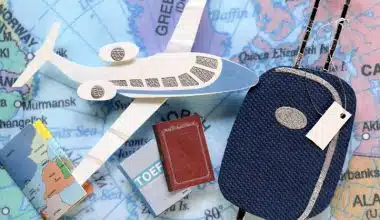Is South Africa Safe? It’s a question on the minds of many travelers considering a visit to this diverse and beautiful country. South Africa has a high crime rate, and travelers are advised to exercise increased caution due to crime and civil unrest. While it is unlikely that travelers will experience violent crime in major tourist areas, overall, South Africa is a safe country to travel to as long as you remain vigilant. Let’s take a deeper look into this fascinating country.
Is South Africa Safe?
South Africa is a country that has some safety concerns, and tourists need to take necessary precautions to ensure their safety. While the country has beautiful landscapes and attractions to offer, it is important to be aware of the potential risks and take steps to mitigate them.
Some factors can impact safety in South Africa, while these factors affect safety in South Africa millions of people live and visit the country safely every year. By taking necessary precautions, staying informed, and being aware of your surroundings, you can enjoy your time in South Africa.
Factors That Can Affect Safety In South Africa
#1. Crime
South Africa has a high crime rate, with incidents such as armed robbery, carjacking, mugging, and smash-and-grab attacks being common. Violent crime is more prevalent in the central business districts of major cities, especially after dark.
#2. Civil Unrest
Demonstrations, protests, and strikes occur frequently in South Africa, and these events can escalate quickly and turn violent without prior notification. They have the potential to disrupt traffic, transportation, and other services.
#3. Terrorism
There is a high global threat of terrorist attacks, including in South Africa. The main threat comes from individuals who may have been inspired by terrorist groups, such as Daesh. Attacks could be indiscriminate and may target places visited by foreigners, such as shopping areas in major cities.
#4. Inequality and Poverty
South Africa has high levels of inequality, and poverty is a significant issue. High unemployment rates, especially among the youth, contribute to social and economic challenges.
#5. Education Disparities
Inequities in education perpetuate poverty and social disparities. The quality of education varies depending on location, wealth, and race, with some schools and communities still affected by the consequences of apartheid-era decisions.
#6. Healthcare Challenges
The healthcare system in South Africa faces various challenges, impacting access to quality healthcare. Factors such as funding, infrastructure, and governance can affect the delivery of healthcare services.
#7. Climate Change
South Africa is vulnerable to the impacts of climate change, including rising temperatures, reduced precipitation in certain regions, and sea-level rise. These changes can have implications for food security, infrastructure, and the overall well-being of the population.
#8. Gang Violence
Certain areas in South Africa, particularly in urban centers, experience high levels of gang-related violence. Gangs are involved in activities such as drug trafficking, extortion, and turf wars, which can pose a safety risk to residents and visitors.
#9. Corruption
Corruption is a challenge in South Africa and can impact safety and security. Instances of bribery, embezzlement, and other corrupt practices can undermine law enforcement and contribute to a sense of insecurity.
#10. Xenophobic Attacks
South Africa has experienced sporadic outbreaks of xenophobic violence, particularly targeting immigrants from other African countries. These attacks can result in injuries, property damage, and displacement.
Measure To Ensure South Africa Safety
There are comprehensive measures and initiatives in place to ensure the safety of residents and visitors in South Africa. From law enforcement efforts to community programs, these strategies contribute to making South Africa a safer place to live and travel.
To improve safety in South Africa, several measures have been put in place
#1. Law Enforcement
The South African government has invested in law enforcement agencies, such as the South African Police Service (SAPS), to maintain law and order. These agencies work to prevent and combat crime, respond to emergencies, and ensure public safety.
#2. Community Policing
Community policing initiatives aim to foster collaboration between the police and local communities. These programs encourage community involvement in crime prevention, promote trust, and enhance safety through community engagement.
#3. Security Measures
Security measures, such as surveillance cameras, alarm systems, and security personnel, are implemented in public spaces, shopping malls, and residential areas to deter criminal activities and enhance safety.
#4. Anti-Crime Strategies
The government has implemented various anti-crime strategies, including specialized units targeting specific types of crime, intelligence-gathering operations, and initiatives to disrupt criminal networks.
#5. Legislation and Policies
Legislation and policies have been enacted to address specific safety concerns. For instance, the Firearms Control Act regulates firearm ownership, while the Domestic Violence Act aims to protect victims of domestic violence.
#6. Public Awareness Campaigns
Public awareness campaigns are conducted to educate the public about safety measures, crime prevention, and emergency procedures. These campaigns aim to empower individuals to take proactive steps to enhance their safety and that of their communities.
#7. Tourism Safety Initiatives
South Africa has implemented specific initiatives to enhance the safety of tourists, including increased patrols in tourist areas, tourist safety ambassadors, and information centers to provide assistance and guidance to visitors.
#8. Traffic Safety Measures
Efforts have been made to improve road safety, including increased traffic law enforcement, road infrastructure improvements, public awareness campaigns promoting safe driving practices, and stricter penalties for traffic violations.
#9. Disaster Preparedness
The government and relevant agencies have disaster management plans in place to respond to natural disasters, such as floods, wildfires, and severe weather events. These plans include early warning systems, evacuation procedures, and emergency response protocols.
#10. International Cooperation
South Africa collaborates with international partners, such as Interpol, to combat transnational crime, share intelligence, and strengthen security measures.
Is South Africa Safe To Travel
When planning a trip to South Africa, safety is a top priority for travelers. There are safety considerations, insights, tips, and essential information to help you prepare for your upcoming adventure in this diverse and fascinating country. South Africa is safe to travel to as long as travelers remain vigilant and take necessary precautions.
Safe Places to Travel in South Africa
While South Africa has its safety challenges, there are still several safe places to visit within the country. However, safety depends on the area and the precautions taken. Here are some safer destinations in South Africa
#1. Cape Town
Cape Town is known for its beauty and is considered relatively safe for tourists. Popular attractions include Table Mountain, the Cape of Good Hope, and the vibrant V&A Waterfront.
#2. Kruger National Park
This renowned wildlife reserve is one of the safest places to go on safari in South Africa. Visitors can enjoy game drives and spot the Big Five animals.
#3. Garden Route
This scenic coastal route extends from Mossel Bay to Port Elizabeth and offers breathtaking landscapes, charming towns, and outdoor activities.
#4. Durban
Durban is a popular beach destination with a vibrant cultural scene. While there are some areas to avoid, the beachfront and tourist areas are safe for visitors.
#5. Stellenbosch and Franschhoek
These beautiful towns in the Western Cape are known for their vineyards and wine estates. They offer a safe and enjoyable experience for wine enthusiasts.
#6. Drakensberg Mountains
This stunning mountain range offers hiking, horse riding, and other outdoor activities. It is safe as long as basic safety precautions are followed.
#7. Pretoria
The administrative capital of South Africa, Pretoria, has several attractions and is known for its beautiful gardens and historical sites. As with any city, it’s important to be cautious and stay in safe areas.
#8. Hermanus
Located along the Western Cape is a safe destination for travelers..Hermanus is a peaceful coastal town known for its whale-watching opportunities.
#9. Addo Elephant National Park
This national park in the Eastern Cape is home to a large population of elephants and other wildlife. It is safe to visit and offers a unique safari experience.
#10. Hluhluwe-Imfolozi Park
Situated in KwaZulu-Natal, this park is known for its conservation efforts and is a great place to spot rhinos and other wildlife. It is considered safe for visitors.
Safety Tip for a Journey to South Africa
Before embarking on your journey to South Africa, it’s essential to be well-prepared and informed about safety. There is a comprehensive set of safety tips designed to help you enjoy a secure and worry-free experience while exploring this unique country.
When traveling to South Africa, it’s important to prioritize your safety. These are essential safety tips to keep in mind
#1. Be Aware of your Surroundings
Stay vigilant and aware of your surroundings at all times, especially in crowded areas and tourist hotspots. Avoid displaying valuable items openly and keep an eye on your belongings.
#2. Use Reliable Transportation
Opt for reputable transportation options, such as licensed taxis or ride-sharing services, especially when traveling at night. Avoid using unmarked or unofficial taxis.
#3. Secure your Accommodation
Choose accommodation in safe and reputable areas. Ensure that your lodging has proper security measures, such as secure entrances, CCTV cameras, and a safe in your room for storing valuables.
#4. Avoid Walking Alone at Night
It’s advisable to avoid walking alone at night, especially in unfamiliar or poorly lit areas. Instead, travel with a group or take a taxi.
#5. Stay Informed about Local Conditions
Keep updated on the current situation and any potential risks or travel advisories in the areas you plan to visit. Check official travel advisories and consult local authorities for the latest information.
#6. Use ATMs and Carry Cash Discreetly
Use ATMs located in well-lit and secure areas, such as inside banks or shopping malls. Avoid displaying large amounts of cash and keep your money concealed.
Keep someone informed about your travel plans and share your itinerary with a trusted friend or family member. Stay connected with your loved ones and have a means of communication with them.
#8. Drink Responsibly
If you choose to drink alcohol, do so responsibly and be cautious of your surroundings. Don’t accept drinks from strangers, and avoid walking alone while under the influence.
#9. Dress Modestly and Blend in
South Africa is a diverse country with various cultures and customs. Respect local traditions by dressing modestly, particularly when visiting religious sites or conservative areas. Avoid wearing flashy or expensive clothing that may attract unnecessary attention.
#10. Be Cautious with your Personal Belongings
Keep a close eye on your personal belongings, especially in crowded public areas, tourist attractions, and public transportation. Use a cross-body bag or backpack that is difficult for thieves to snatch.
Is South Africa Safe For Women?
South Africa has historically had safety concerns for women travelers, although the situation has been slowly improving. Precautions should be taken, such as avoiding isolated areas, using reliable transportation, choosing safe accommodations, and being mindful of valuables. Dressing modestly, avoiding walking alone at night, and staying informed about local news and events are also important. While South Africa can be safe for travelers, it is crucial to exercise caution and trust your instincts.
Why Move To Canada From South Africa?
People may choose to move from South Africa to Canada for reasons such as safety, job opportunities, quality of life, community connections, and the various immigration pathways available. Canada offers a high standard of living, stability, and a range of career options, along with access to excellent healthcare and education. Building connections within the South African community in Canada can also provide a sense of support and belonging.
Is South Africa A Developed Country?
South Africa is considered a developing country rather than a developed one. While it has one of the largest and most developed economies in Africa, it still faces socio-economic challenges such as weak structural growth, high unemployment rates, crime, and corruption. The World Economic Forum has even warned of the risk of state collapse in South Africa.
Which Is The Safest Country In Africa?
The safest country in Africa is Mauritius. It is ranked as the safest country in Africa based on the Global Peace Index (GPI), with a score of 1.570. Other countries that are considered safe in Africa include Ghana, Botswana, Rwanda, and Seychelles.
How Cheap Is South Africa?
South Africa is an affordable destination for travelers. Accommodation costs are generally affordable, and food and drinks are relatively cheap. The value of the South African Rand compared to currencies like the US Dollar, Euro, or British Pound makes the country more affordable for international visitors. However, prices can vary, especially in popular tourist areas like Cape Town, where prices may be higher during peak travel times.
Is South Africa Rich Or Poor?
South Africa is a country with significant economic inequality and poverty. It has one of the highest levels of income inequality in the world, with a wide gap between the rich and the poor. The richest 10% of the population own a significant majority of the household wealth, while a large portion of the population lives below the poverty line. Systemic failures at a government level, unequal access to opportunities, and inadequate provision of essential public services contribute to the existing poverty and inequality in the country. Despite having a well-developed industrial and service sector and abundant mineral resources, the benefits have not been evenly distributed, leaving a significant portion of the population in poverty.
Conclusion
South Africa is implementing comprehensive measures to ensure the safety of residents and visitors. These strategies aim to maintain law and order, foster community engagement, deter criminal activities, and promote trust and collaboration among citizens. South Africa is a safe destination for travelers, with some safe destinations including Cape Town, Kruger National Park, and so on. These destinations offer beautiful landscapes, wildlife, and outdoor activities while requiring vigilant precautions and vigilance.
- BEST DESTINATIONS FOR VACATION IN AFRICA
- TOP SOUTH AFRICAN RESORTS IN 2023
- TOP 10 SAFEST COUNTRIES IN SOUTH AMERICA: The Ultimate Guide
- IS DETROIT SAFE? All You Need To Know
- BEST AFRICAN SAFARIS: Top 15 Destinations






